Media/News
Local
On January 7, 2011, The Tennessee Department of Education released its Adequate Yearly Progress and State Report Card for Pre-K-12 education 2009-10. Adequate Yearly Progress is the measure of whether a school system or school is making academic achievement based on student performance on annual tests. According to the federal No Child Left Behind Act (NCLB), 100% of students must score proficient in Reading/Language Arts and Math by 2014.
Schools that don’t meet the same specified AYP benchmarks for 2 or more consecutive years are called high priority schools. As of the January 7, 2011 release date, Tennessee had 186 high priority schools. Note: 56 high priority schools are in Memphis City Schools, 33 in Davidson County Schools, 16 in Hamilton County Schools, and 15 in Knox County Schools. The remaining school districts in Tennessee had fewer than 10 high priority schools.
For a complete list of high priority schools and to view Tennessee’s Report Card, go to the Tennessee Department of Education website at www.tennessee.gov/education.
Tennessee’s First to the Top (update provided by Tennessee Department of Education, 2011)
This month marks the one year anniversary of Tennessee’s Race to the Top win and of the dramatic set of school reforms planned for the coming years. Tennessee was one of just two states selected on Mar. 29, 2010, to receive over $501 million for education in the first round of the federal government’s Race to the Top competition. Since, Tennessee has hit the ground running on comprehensive improvements that will better prepare students for college and careers. Tennessee has embarked on a once in a lifetime opportunity and several projects.
At the heart of improving student achievement is a focus on three main student performance goals: young students’ academic readiness, high school graduates’ readiness for college and careers, and higher rates of graduates enrolling and succeeding in post-secondary education. Amongst these initiatives, Tennessee has a renewed focus on developing and improving great teachers and leaders in Tennessee classrooms. Tennessee’s First to the Top plan has given the state unique resources and financial opportunities – placing renewed focus on the classroom teacher and a more dedicated focus on encouraging student achievement.
Through recently awarded funding such as the Innovation Acceleration Fund, Teacher Incentive Fund and Teacher and Principal Residency grants , Tennessee has the opportunity to strengthen the education profession as a whole-from students to teachers. These funding opportunities commit education reform to district level changes in compensation structures, increased teacher recruitment and retention efforts and sustainability beyond the span of First to the Top plans and grant periods.
Tennessee’s focus is not just about funding, but providing all with the feedback and support they need to succeed. Department staff continue training with schools participating in the state field test of the observation rubric for a new teacher and principal evaluation system, and top education officials invited teachers to tell policymakers what they need to promote and improve their classrooms through the Teaching, Empowering, Leading and Learning (TELL) survey, conducted in February and continuing through March. Professional development opportunities are a major component through such partnerships as those formed with the Tennessee Higher Education Commission and Battelle Memorial Institute. These collaborations provide support for STEM (science, technology, engineering and math) professional development for K-12 teachers, the College Access and Success Network, more effective teacher preparation programs, and enhanced stakeholder engagement and collaborations that bring together business and education to motivate teachers and students alike.
Success is the primary target and Tennessee is dedicated to improving struggling schools. The Achievement School District (ASD) staff continues plans for school implementation next year and utilization of successful strategies in schools with great academic need. Tennessee is challenging students, teachers, parents, administrators, and districts across the state to rise to the challenge of higher academic proficiency levels and benchmarks.
Three years ago, Tennessee’s education system struggled with poor student outcomes and inadequate standards that did not properly prepare students for the demands of college or work after high school. Today, Tennessee is in position to achieve proficiency, and is committed to the leading the nation in developing education leaders.
This past year has been a unique year in education reform across the state. More accurately, the past year of education in Tennessee can be best described as unprecedented. As Tennessee transitions into a new administration under Governor Haslam, the state remains committed to upholding and pressing forward with key factors and goals of the First to the Top plan for the future of all students.
Booker T. Washington Graduation, May 16, 2011, in Memphis, TN. The school’s graduation rate improved from 55% to nearly 82% in 2010.
Shortly after I learned that President Barack Obama would be speaking at my high school’s commencement this spring, I began receiving a great deal of attention. The question on everyone’s lips: How did you make such massive gains at Booker T. Washington? The question revealed an underlying assertion that the presence of my students near the top of lists on high school completion and academic achievement is an anomaly. Although I was thrilled beyond belief by the opportunity to meet the president, a part of me was disturbed, angered even, by the low expectations of my Booker T. Washington High School babies. After all, children rise to the expectations we set for them; they thrive on the support we give them to meet those expectations.
But before we set high expectations for children, we have to love them.
Education theory and scholarship focus on typologies of effective leadership. Leadership styles and theories sometimes consider the human-interaction aspects of the work, but the idea of love, especially in school leadership, is largely absent. In academics and politics, we try to capture the idea of love by speaking and writing about “the ethic of care,” “caring adults,” and “emotional intelligence.” It is almost as if we are afraid to say that our work is a purely human endeavor—that our jobs are to develop human beings.
Debates about how to reform urban public schools overwhelmed by poverty and surrounded by neighborhood violence focus on everything from the quality of the education professionals in the buildings to the specificity and rigor of course standards and content. We spend a great deal of time in education focusing on inputs and outputs as if we were monitoring a manufacturing process. Yes, I monitor student data. Yes, I try to stay on top of research to provide the best instruction and programming for my students. And yes, I make sure what is happening in BTW is aligned with state standards and policies. I am a professional. I hire professionals. What we do is what anyone who is well prepared to be a professional educator does on a regular basis.
This issue of dehumanizing the work of human development is not restricted to schools. It is part of the fabric of our politics and economics. Saying that our economic future rests on the success of our schools while ignoring the connection between our schools and the daily lives of people living in poverty is fundamentally dishonest. Focusing on schools with laser-sharp intensity without integrating housing, food, health, and other social-policy matters sets a trap for educators and children alike. The way we approach the education and development of children living in poverty is simply unloving.
Love is greatly misunderstood in politics and scholarship. From the appearance of women as teachers in the 19th century, love has been marginalized as a soft and feminine characteristic. But love is hard and defies gender restrictions. For school leaders, it requires rising above the human instinct of self-preservation and exposing oneself to pain and disappointment. It requires seeing other people’s children as valuable and worthy of love even when their parents and communities may not. It requires weeding out staff members who lack love for other people’s children, even when they are highly skilled teaching technicians.
“How did I make such massive gains at Booker T. Washington? I loved my children. I hired people who would love my children. And then I did my job.”
In the political realm, love requires exposing the bigotry and hate that serve corporate wealth instead of addressing human poverty. It requires acknowledging that poverty is indiscriminate and working toward an equally indiscriminate solution. It requires being steadfast in the face of wily political maneuvering intended to capitalize on fear and poor critical-thinking skills. And it requires us to do so with love for those who would seek to do us harm for challenging the status quo.
The English language is insufficient in the face of love. The mere mention of the word “love” can elicit eye-rolling because it is used so often in meaningless ways. We have reduced the word to the heart symbol and no longer need to spell it out to communicate our shallow intentions. But love is far more powerful than our language can capture.
When I was a girl, my father would send me off to school every day by letting me know he loved me, I was special to him, and he expected me to do great things. I let my BTW children know I love them, they are special to me, and I expect them do great things. I hire professionals who are willing and able to communicate the same messages in word and deed. Before we can put any of our knowledge and skills to use, we have to love our students.
Children cannot eat love, but our love for them directs us to help them find sustenance. Love cannot shelter them, but our love for them directs us to support them by acknowledging the academic challenges that can result from homelessness and, when we can, helping them to secure shelter. Love cannot stand between children and abuse, but it can help them heal.
Success with children who have been cast aside by our society begins with love. Typical reforms may succeed through early adolescence when they depend on technical capacity and behaviorist methods, but by the time children reach adolescence and have fully absorbed the negative messages about their value to the larger society, the only thing that will get through is love. We can try to capture love through lists of characteristics and action steps, but until we delve into the real meaning and value of love in education, we will all be spinning our wheels.
How did I make such massive gains at Booker T. Washington? I loved my children. I hired people who would love my children. And then I did my job.
National
How do Tennessee’s ACT scores rank in the nation??
Unfortunately, Tennessee has the 4th lowest ACT composite score (19.6) in the country. Tennessee also has the dubious distinction of having the 2nd lowest ACT Math score (19.0) in the country (the lowest ranking state for math is Mississippi). The ACT Math test is repeatedly the lowest score of the 4 subjects tested for Tennessee students. Since 2006, the Math subject area test score has declined for students in Tennessee, whereas, the national average for math has increased.
